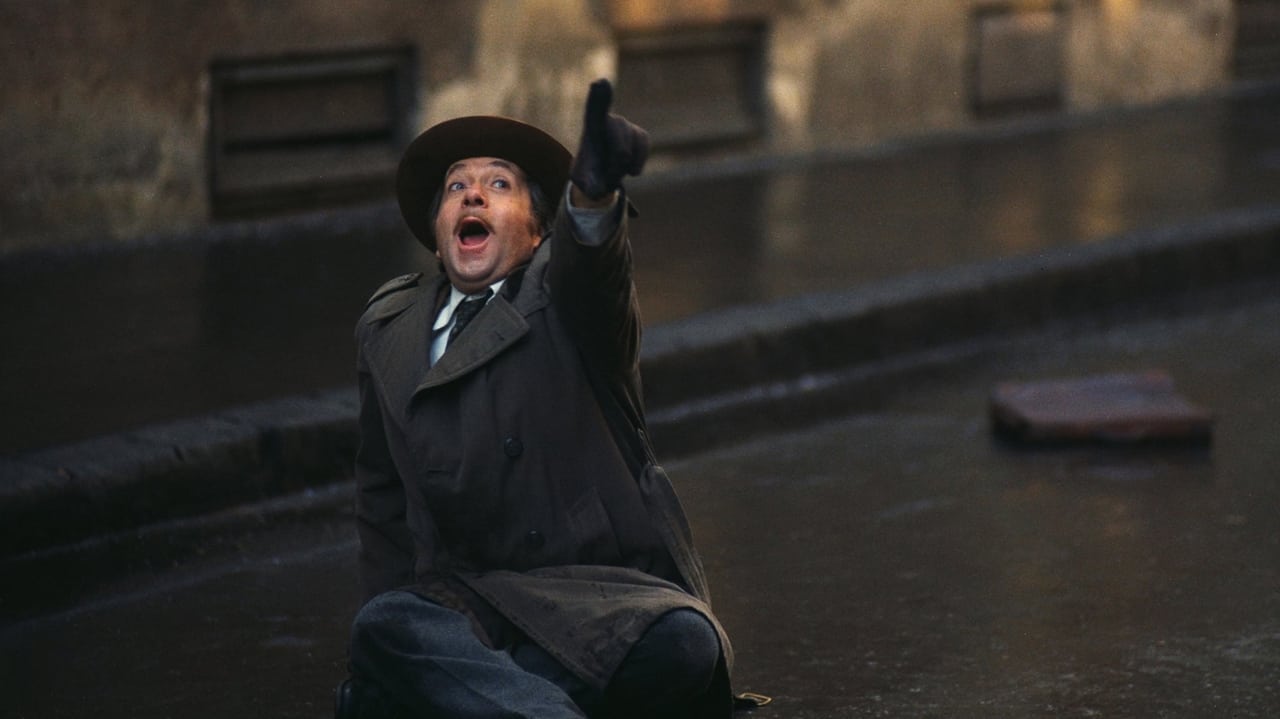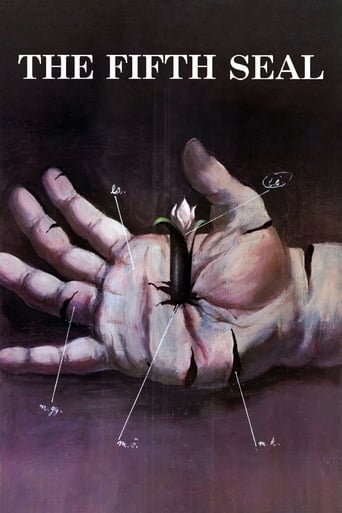

What hypothetical question could be compelling enough to spawn an entire film? I watched this movie because I wanted to know.The Good: The hypothetical is really very compelling. Furthermore, it is discussed in a way that reveals its subtlety rather than coming back to the same sticking point over and over. The characters in this film are vivid and well portrayed. The setting is also surprisingly rich. This is important because a lot of this movie takes place in the same place. I was somewhat worried that this movie would just be people sitting around a table talking. That is more or less the case, but it works out nicely. The proceedings are intellectually and spatially dynamic. I was also a bit worried that I wouldn't really be able to understand the film without having the proper cultural context. This turned out not to be much of an issue. I may have missed some things, but you can enjoy this film knowing only that its set in some country that is at war. The Bad: A large part of this movie is people sitting around a table talking. Like I said, I found this to be interesting, but it isn't particularly exciting. It isn't inconceivable that some people might find this movie to be boring. I should also mention that I found the final act, a drastic departure from the rest of the film, to be contrived. Overall: This is an interesting movie. Stark and intellectually engaging, the film is surprisingly powerful and surprisingly universal.
... View MoreWhen i first watched this movie, i was 16, and i was very impressed. In my opinion this movie is the best Hungarian movie which was made in the 20th century. I saw this movie a couple of times and i read the book as well. It is strange, i enjoyed the book as well, but i enjoyed the movie a bit more. If you didn't saw this movie yet, and you like slower philosophical movies, go and watch it, you wont regret... I think i like this movie the most because i think the same way as the author of the book did. In my opinion, if you would be able to choose between a life of an emperor and a slave, no one would choose the slave. No matter how hard his/her life was before. And as Gyuricza said in the movie, if you tell that you would choose the slave, you are a liar...
... View MoreWho would you like to be: Tomóceusz Katatiki (slave-holder) or Gyugyu (slave)? This question pops up at a casual meeting between regulars in a bar. Everybody tries to figure out his own answer. Meanwhile, the historical events unfold and the characters has to make their real choice in real life.A slow-paced, dialogue driven movie based on a book. Characters played by top actors under good director. Őze Lajos, playing one of the main character, has a really memorable acting here. Music also matches the mood, a little bit grotesque made by a mechanical device, which we can observe at the beginning of the movie. The visuals are usually dark, there are some references and symbols. One of the most noteworthy visual reference is when a Hieronymus Bosch painting (The Garden of Earthly Delights) comes to life.It's a must see movie from Hungary.
... View More*** In 1944 - during a WWII - a fascism regime has came into power in Budapest. Although the hard circumstances few men come to drink and spend every evenings in a boozer together to speak about their common acquaintances and the proper and finest making of the fresh calf's meat. They are Mr. Gyuricza, the watchmaker, Mr. Kiraly, the book agent, Mr. Kovacs, the carpenter and Bela colleague, the innkeeper. One day an unknown photographer come to join them exactly when Gyurizca put a question in his usual satirical method to the company: what if they could rebirth and choose between the roles of the rich tyrant and the tortured slave who's still honorable. What would be? That time they don't know yet that this theoretic question must be answered very soon in a real torture room. ***This movie paints excellent picture how the dictatorship has worked in deed and how the regime has caught and changed the common people into something they never would became. It's not a 1984 like we've seen that in Orwell's powerful but mostly utopian vision, neither it's not really a V for Vendetta which is Hollywood's romantic Zorro-like dream about a totalitarian society. It's the story of the nameless people, the nobody who has the power at will, but no will to use their power. The director, Zoltan Fabri handles the characters properly. The dialogs are great and the filming is amazing. Some people may say it's dark but I think it has more then bright light to show how the regime has manipulated the common people who lived in the country. They didn't print any handout against the regime. They wouldn't explode anything. They just would live in the country. Still. They were hazardous for the regime. Once they got their accordance and reason, they got the power and could not be stopped anymore. Or almost not. This is what the regime never let to happen.I think that the main oppressor character (formed by Zoltan Latinovics - in my opinion he was the one of the greatest actors who has ever lived) has right.'It's tiny issue when somebody drop a bomb to a party house. Some paints things to the walls. It's also tiny issue. Some shoot few friend of ours that's also a tiny issue. Why? Because we are going to catch them and hang up or shoot them. Before or after but finally they will be all dead for sure. So they are all tiny issues. The remaining ones matter! Whose don't explode bomb, don't paint or anything. They live among us. They are the mass. We may have some real problem with them.'Fascism or communism. Doesn't matter. Both has followed the same overwhelming cliché what Ferenc Santa (the writer) put so effectively into his characters' mouth. 'These four men have to learn that you really have the right to tell them that their wife is a whore or beat them as you wish. They must memorize that they can do nothing but you can do anything! Keep them in doubts. Let them fear, including the innocents and criminals... so you will beat them on a pedagogic basis.'I'm wondering that this movie could be created during the 70s of Hungary (for the readers are not native Hungarians, we have a communist regime until 1989). But I'm quite sure that the oppressors of that time didn't recognize themselves in this mirror as they acted right after 1956 in the darkest years of the communism. Maybe Mr. Gyuricza, the watchmaker said properly. 'The tyrant was sure that he is the best ruler in world because he acts according to the morality of the age and he has right reason.'One more thing: in my opinion this movie precisely open up the sad fact that almost all dictatorships have left shame in the nameless survivors' soul for something, to hardly let them speak and trust again to each other. It's one of the oppressors' well crafted advantage.In total: Excellent movie. Deep and touching. Good acting. Honorable question. What is your choice would be?I can recommend this anyone who wish to know more about that psychology of the theme. Unfortunately the DVD release I got has got only Hungarian language. I hope that some dubs or subtitles are available somewhere for other languages to show this great movie for a greater audience.
... View More